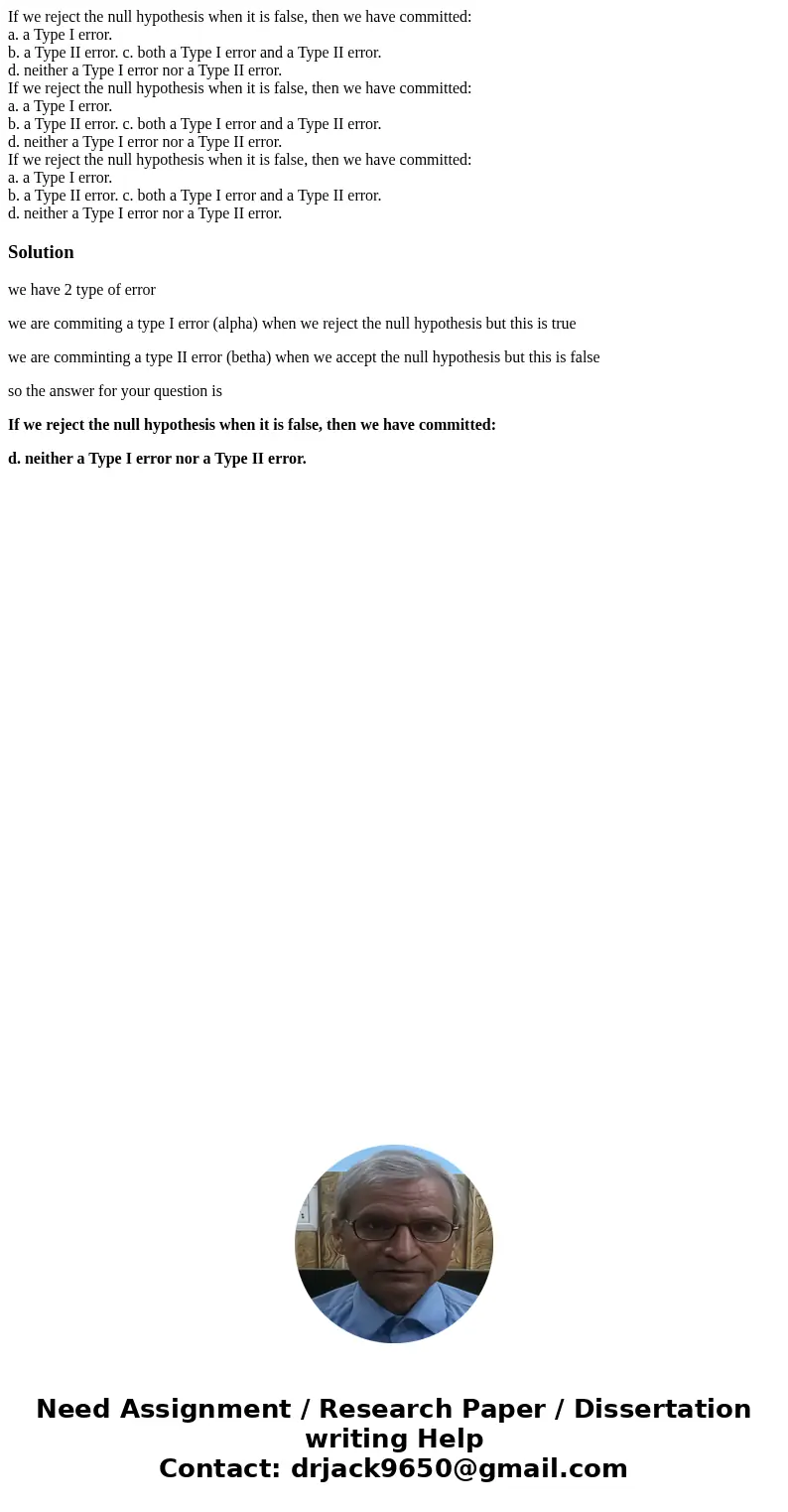If we reject the null hypothesis when it is false then we ha
If we reject the null hypothesis when it is false, then we have committed:
a. a Type I error.
b. a Type II error. c. both a Type I error and a Type II error.
d. neither a Type I error nor a Type II error.
If we reject the null hypothesis when it is false, then we have committed:
a. a Type I error.
b. a Type II error. c. both a Type I error and a Type II error.
d. neither a Type I error nor a Type II error.
If we reject the null hypothesis when it is false, then we have committed:
a. a Type I error.
b. a Type II error. c. both a Type I error and a Type II error.
d. neither a Type I error nor a Type II error.
Solution
we have 2 type of error
we are commiting a type I error (alpha) when we reject the null hypothesis but this is true
we are comminting a type II error (betha) when we accept the null hypothesis but this is false
so the answer for your question is
If we reject the null hypothesis when it is false, then we have committed:
d. neither a Type I error nor a Type II error.

 Homework Sourse
Homework Sourse